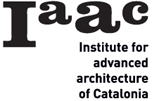Architecture should be an integrated concept in the strategic planning from micro to macro level.The optimal development is the one that meets the needs of the present, without compromising the ability of future generations to meet their own needs that looks to balance different, and often competing, needs against an awareness of the environmental, social and economic limitations that we face as a society. Read More
Architecture for Humanity !
Sustainable Urbanisation
During the last four and half decades, 5-6 million people have been added to urban India every year. The country has one of the largest urban systems with 289 million in 2001, which is projected to increase to around 605-618 million during 2021-2025. However, the key urban concern is the growing gap between demand and supply of basic services. While there has been a steady growth in the housing stock, infrastructure and services, the gaps between demand and supply have been rising, even in terms of conservative norms.
Know Thyself
To face such a theme, in an economy class in an architecture school, I don’t feel suitable enough both as a student of the latter one, and even if I had deep bases of economic knowledge; it’s hard and annoying speaking as a single person in a moment like this, and it is likewise spending words instead than actions about our continuous, but distant and conflicting, with the sustainability. Unfortunately the sustainability is a recent problem, or at least is very recent the frequency with which we use this word, and it is approached as a branch of various disciplines; but the true is that talking about it I find hard making an architectural, scientific, or whatever speech, because I see the investigation of causes and consequences of it as something totally philosophical. I see philosophy on it because is from the human kind, in the human thinking resides the virus of an illness, of which the sustainability is the therapy, and which seems to be just contained and controlled, but hardly stopped or healed; and even if we want to speak as architects, economists, biologists, we know that behind all these figures reside, first of all, human thoughts and behaviors. The growth we are proud of, the extreme development in which our present is plunged, and the deep unsustainability in which these conditions coexist, can be analyzed and shared in different disciplines, in different periods, divided in positive and negative meanings, where the formers are always more, but what is just clear, uniquely sure, is that everything we call present is nothing more than what we have been building and how we have been expressing ourselves and our nature with our wellbeing as the main and only goal to follow.
The 21st century is asked for a necessary rethink of how the design process is affecting the human habitat. Architecture, in its multifaceted concern and as discipline, has to reconsider the urban environment through its infrastructures, landscapes and buildings, and their many interdependencies within the context of natural and social ecologies. Buildings, infrastructures and the landscapes are not separated entities connected through fleble filaments, rather complex patterns composing the tridimensional, endless and dispersive urban environment where energy sources, materials, water and land are all consumed in the purpose of its developement and operation. While in the contoured and small social organism the direct information exchange was able to transform rapidly the need in the architectural and social-recognized object, in the contemporary urban environment the society doesn’t play a central role in the shaping process. Skyscrapers, well-done or not buildings rise indipendently without any effort in integration and common recognition, asserting their autonomy but affecting invisibly and deeply the pre-established connections. The design has to be a partecipated and systematic process calling urban users to push towards their needs in order to make the building an occasion to fill the gaps in the fragmentary network and discover again the humanistic value Architecture shares with Economy as much as the two disciplines use to learn and propose starting from the human behaviour preferences.
The financial project implyes profitability in the shortest term. The urban environment for the most of developers represents the perfect marketplace for the financial investment. Short time, money and competitive unsensitive minds, craving for richness, lead the urban growth towards disconnected configurations and unsustainable scenarios. Politics should be the protagonist in the urban formation, but more than often it becomes a serie of costraints that limits the private mindset. Politics should regulate the urban developement and call people directly interested in the trasformation for partecipating in the decisional process. As architects and as Yona Friedman would say, we should be less architects and more interpreters, trying to read and canalize users needs into collective formal proposals. We should consider the humanity as the only self-designer and us as technical advisors, availing ourself of several experts driving the Architecture to the final aim of sustainability.
place[less]ness
Instead of looking through impositions of the mainstream towards the discipline of architecture, today, it is essential to approach environmental problems in an alternative way including critical evaluations. The transition in development and transformation of environmental concepts in architecture and design disguises social and political shifts. Therefore it is not surprising that sustainability covering environmental, social and economic aspects, is defined in reference to development. The thought that the concept of sustainability shall reverse all of the current practices suggesting a brand new paradigm is out of basis. Read More


